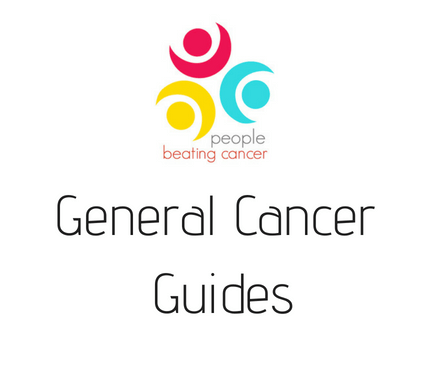Leave a Comment:
1 comment
[…] Age-related Macular Degeneration & Skin Cancer Therapies High Risk for Skin Cancer? Protect Aging Skin While Reducing Your Risk of Skin Cancer […]
Reply
Learn about conventional, complementary, and integrative therapies.
Dealing with treatment side effects? Learn about evidence-based therapies to alleviate your symptoms.
Click the orange button to the right to learn more.

We all know that if we get too much sun our skin will wrinkle making us look older than we are. And many of us know friends or family who have smoked for years causing them to look older than their years.
While I don’t smoke. I did sit in the sun way to much as a kid. Because of my multiple myeloma diagnosis at 34 I have undergone both high-dose chemo and radiation toxicity that has saddled me with many skin cancer risk factors.
Being a long-term cancer survivor I have learned about foods and supplements that reduce my risk of cancer and reduce risk of a secondary “treatment related” cancer.
When I came across the article linked and excerpted below I realized that many of the supplements I take to reduce my risk of cancer are also helping me look better as I age.
I take CoQ10 for the chemo-induced heart damage I sustained when I underwent chemotherapy. I take Green Tea Extract for it’s anti-MM properties. Though I do not believe in “mega-dosing” any single vitamin, mineral or antioxidant, I do believe that I should supplement with normal doses of those listed below. I have linked the brands below that I take.
Have you been diagnosed with skin cancer? Please scroll down the page, post a question or comment and I will reply to you ASAP.
Thank you,
David Emerson
“2. Skin Antioxidant Defenses- Although the skin possesses an elaborate antioxidant defense system to deal with oxidative stress, excessive and chronic exposure to UV light or other oxidizing agents (e.g., cigarette smoke) can overwhelm the cutaneous antioxidant and immune response capacity, leading to oxidative damage and immunotoxicity, premature skin aging, and skin cancer…
The Importance of Antioxidants in Decreasing ROS Formation and Skin Cancer Prevention
“Dermatologists constantly stress the need to protect skin from exposure to harmful ultraviolet (UV) radiation, which puts the body at risk for developing skin cancer. While the importance of wearing sunscreen may be common knowledge, millions of people continue to skimp out on protecting their largest organ from sun damage.
One thing is very clear when it comes to sun exposure: Your actions have a lasting impact on your body. Taking preventative measures against skin cancer can help ensure good health in your later years and increase your odds of longevity.
The reality of the situation, however, is that you’ve probably already done untold damage to your skin without realizing it, even if you’ve taken steps to protect yourself from UV rays. Most skin cancer cases are caused from sun exposure during childhood years because kids tend to spend more time in the sun and are more susceptible to sunburns.
“One blistering sunburn as a child doubles your rate of melanoma later in life,” said Dr. David Agus, a CBS News medical contributor and the director of USC Norris Westside Cancer Center. “Many of us were exposed as a child. Many of us got sunburns. We have to be aware of it.”
That damage may already be done to your skin, but it’s never too late to think about making better choices. Now is the time to start taking preventative measures against skin cancer.
Skin cancer has become the most common form of cancer diagnosed in the United States. In fact, one in five Americans will develop skin cancer in their lifetime, according to the American Cancer Society.
There are three main types of skin cancer. Basal and squamous cell skin cancers are most commonly diagnosed, and they typically appear on your head or neck. Melanomas are not as common, but they can be deadly if left untreated.
“Skin cancer is one of those cancers that if you catch early, you just cut it out and it’s over,” Agus said. “(If) you miss it or you wait a while, bad things can happen.”
Research shows that most skin cancers are caused by over-exposure to UV rays from the sun and/or use of indoor tanning beds.
Is it skin cancer?The most common way to protect your skin from burning is to apply sunscreen that has a high SPF (sun protection factor).
Other preventative measures include wearing protective clothing, such as long sleeves. Wearing a hat while outdoors also helps reduce the risk of skin cancer.
“I think the best advice so far is wear long sleeves, stay out of the sun,” Agus added. “Any thick cotton is going to protect you from the sun. Thinner clothing allow some UV radiation through. The sun is not good for your skin.”
Overall, it’s important to regularly see a dermatologist for annual checks, especially if cancer runs in your family. You should also keep an eye out for any abnormal moles or changes in your skin.
“You can’t reverse the damage, but you can prevent more damage,” Agus said. “I think that’s critical.”
Early detection of skin cancer is key to receiving an effective treatment plan. It’s the key to survival.”
[…] Age-related Macular Degeneration & Skin Cancer Therapies High Risk for Skin Cancer? Protect Aging Skin While Reducing Your Risk of Skin Cancer […]
Reply